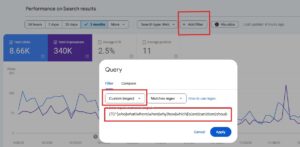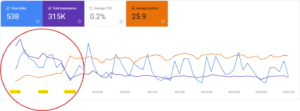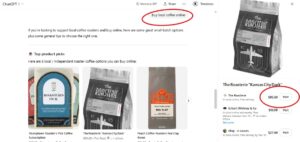Social media. You’ve probably had it drilled into your head that you need to be keeping up with a social media presence for your brand. In fact, most business owner’s ask us how we help make their business a bigger presence on social media because research shows 44% of internet users visit social networks for brand information.
The issue we face when offering agency services is we get the right siloed questions, but most people don’t really know how and why different services work together. Furthermore it’s really hard to keep focus and trust with any marketing investment without fulling knowing what results to expect and how to define success.
A Rank Fuse, we like to “fuse” a lot of digital marketing strategies together. One important combo we highly value is the relationship between SEO & Social Media. The benefits of each are independently important but can be very powerful when done properly together. Below are a four reasons why social media can also really help your SEO goals.
1. Increased Brand Searches and Website Traffic
All SEO roads lead back to content and as luck would have it, social media is all about having great content as well.
Actively sharing your content on social media is one of the best ways to get more visits on your website. For SEO purposes, what really helps is linking to articles on your domain where you can share your knowledge and expertise. Even if people don’t click on the first time they remember you and search for your brand or click on your next post.
Some social networks can also support online reviews. This can further SEO signals as far a reputation and the amount of people talking about your products, services, or business. The more people that interact with your posts, the more visible the posts will be to others. You can also boost posts and create ads on social media platforms to get your posts out to even more people. Remember Google owns YouTube so if you have a great video channel the number of views, likes, and comments from your video content is directly owned by Google.
Pro Tip: Don’t forget to use schema and open graph tags in your website’s HTML to communicate which social media accounts belong to you. Google (and other search engines) are likely to crawl your website and pull up social media accounts in search queries for your brand. Not only will this help own the first page of Google for your brand, but you can make sure people are following the correct social media accounts and someone else business doesn’t pop up in the rankings.
2. Increased Off-Page SEO Signals
Shares, likes, and comments also amplify the content you have written. When an article has reached friends (or friends of friends due to popularity) it becomes a link resource for other articles. Often the best content your create is also the content that you get the most backlinks from. These backlinks can help increase your domain authority, which can boost the ranking of your website within search engines.
Without social media it’s hard to trigger a viral or popular response from others. The more people you can draw to your website and social pages, the more people will recognize your brand. Building a recognizable brand doesn’t happen overnight, but you can use social media to start increasing your company’s brand recognition and earning more links to content that would have otherwise gone unnoticed.
Pro Tip: Google monitors backlinks to websites as a very strong part of their SEO algorithm. Google is not only looking for links to just to your home page either. When we do SEO audits we find some of the most powerful links for SEO success come from deeper article links. When your articles are getting specefic attention from social media your SEO game is firing on all cylinders and keyword rankings will improve over time.
3. Improved Local Citations
Local SEO is crucial for small, local businesses. Business listings are so important for these companies who are often competing with nearby competiton. With social media profiles, you can repeat the information that is included in your business listing numerous times and optimize your social media profiles for SEO by including a keyword-rich description of your business. Additionally, you should include a clear description of your products and services, your hours, and both a phone number and address. Connecting with local hashtags or city causes can also earn you more engagement from people in your area. If local keywords are important for your SEO goals, then keeping a local flavor with your social media is also important.
Pro Tip: All of the about information on the social media profile needs to be the exact same as what is listed in your Google My Business profile. If you phone number changed, office location moved, or URL changed you need to keep not only the website current, but all your social media properties updated as well. Not doing this can create a lack of trust and trust is a big local SEO factor.
4. Analytics = Better Content
Once these posts have been created, Google Analytics can show you who visited your website. The deeper SEO value is engagement trends. How people interact with the posts, and share the posts with other people they know is a great for social media, but can lead to more people seeing your posts, and in turn, your website.
Now that established that posting content and sharing out information is big win for UX metrics, links, and local SEO; what if your company is not covering the right topics and engagement and SEO value is low. The good news is, social media can help expedite this discovery and make you better.
Once you have published a blog post on your website, shared it on your social media profiles, the final step it measure its impact. Was it a top 10 post, was it not?
to further extend the life of the post. Sharing blogs on your social media accounts allows you to amplify it far beyond a newsletter or email feed. This helps you get more eyes on your blog posts that you otherwise may not get. Additionally, you can share blogs more than one time. Maybe you share the blog the first day it goes live, then again a month later, and finally one more time six months later. This tactic is going to get your post seen far more than had you just published it on your website and hoped for Google to work its magic.
ProTip: Use Google Analytics and social data (likes, comments, shares) to find out what your top 10 articles are. Also understand what your worst performing content is. While the impact of every thing your write may not break records the idea is to follow the path that is working for you business. Once you have a hypothsis of what people want to read you can make a better content calendar that will not only help social media scores, but also be a useful asset for SEO gains.
Using social media, you can control the distribution of your content and increase its lifespan.
While the impact social media has on your SEO isn’t always tangible, it can help increase website traffic and encourage more people to interact with your business. If you don’t already have social media profiles set up for your business, this is the first step you should take. If you need some help managing your social media accounts, Rank Fuse can help. Learn more on our website.




